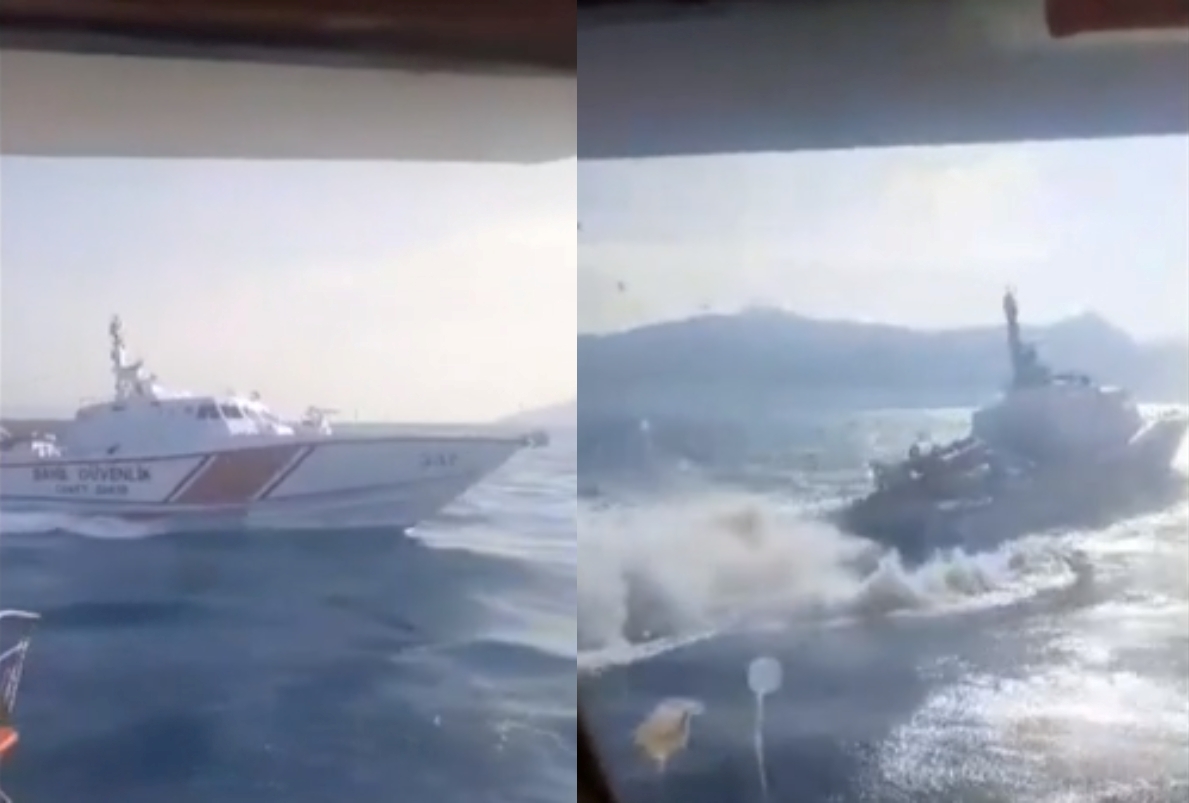A report that a Turkish patrol boat entered Greek territorial waters near the Imia islets in the eastern Aegean on Saturday mostly received only cursory attention by the media over the weekend, given that the Hellenic Coast Guard (HCG) quickly added that the former vessel immediately departed after a notification by the Greek side.
Nevertheless, according to the Athens daily “Ta Nea” two days later on Monday, the incident was not as innocuous as initially portrayed.
Instead, the encroachment reportedly generated communication over a new “red line” between Greek and Turkish coast guard liaison officers. The same report in “Ta Nea” holds that the incident continued for some 15 minutes in a tense standoff.
The two Imia rock islets, called “Kardak” by official Turkey since 1996, were the setting for a near-confrontation by Greek and Turkish military forces in January of the same year. The Ankara government at the time under nationalist Tansu Ciller disputed Greek sovereignty over the two rock islets, leading to the crisis.
The “red line” used for direct communication between the two coast guards at the highest level was agreed to after a recent visit to Turkey by Greek Shipping Minister Christos Stylianides.
The situation in the waters of the eastern Aegean, as opposed to the airspace over the same sea, also appears as unaffected by a recent Greece-Turkey rapprochement, with the latest attempts by the Turkish coast guard ostensibly aimed at keeping Greek fishing boats at bay in favor of Turkish trawlers in specific breeding grounds.
The incident near the Imia isles is similar to one that occurred recently off the Dodecanese island of Kos, where another Turkish patrol boat entered Greek waters.
The latter incidents come in the wake of another NAVTEX issued by a Turkish maritime body in Izmir staking out chunks of the Aegean for military maneuvers and referring to 24 Greek isles as “demilitarized”, i.e. enjoying a lesser sovereignty.
Athens dismissed the latest Turkish NAVTEX, as it has done in the past and detailed what the International Law of the Sea stipulates and what bilateral and multilateral treaties actually state.
According to “Ta Nea”, official figures by Greek national defense general staff show that airspace violations and FIR infringements by Turkey over the Aegean essentially ceased in 2023. Nevertheless, violations of territorial waters continued to increase.
Specifically for 2022, the Greek military recorded 1,581 territorial water violations by Turkish navy warships and coast guard vessels, rising to 1,642 in 2023.



